Tekox — Machine vision and machine learning for quality control
Machine vision applied for quality control and defect identification in mass production
The Poka-Yoke Digital project (Research and development of an intelligent system based on artificial vision and automatic learning to automate the visual control of all manufactured parts and identify defects in real time) proposes the design and development of an intelligent model for the detection of faults in production lines.
The system is capable of visualising all the parts produced in real time and identifying and classifying their defects thanks to continuous self-training of the system.
What issues are being addressed or improved?
Mónica Fernández, Quality Manager at Técnica de Conexiones, S.A. (Tekox), tells us that until now, in her company’s injection moulding line, they had established periodic quality controls in which the operator visually checked the plastic parts for defects.
But these self-checks did not prevent defective parts from being passed on to the next production line. This meant that these defective parts were assembled into the final product and could even reach the customer.
With this new tool, Tekox, which specialises in the design, manufacture and marketing of low-voltage electrical connection elements, is able to detect defects at the injection moulding machine, which means that defective parts can no longer be injected.
In addition, the defective material that has been injected can be reused on the spot, thus avoiding the costs of reprocessing defective material, costs due to machine stoppages or customer complaints.
What digital technology is used to address the problem?
With Intermark IT as digital enabler, the consortium behind Poka-Yoke Digital has worked on the design and development of a system capable of visualising all the parts studied, and which are produced in series in the companies established as use cases.
Intermark IT has carried out the training of the system by introducing thousands of images provided by each of the partners involved, resulting in a model built with machine learning tools (machine learning) and artificial vision.
In this first phase, the project has been able to achieve an analysis capacity of ten parts per second, which will allow it to be deployed in high-speed serial production environments.
What are the results and what is the impact?
The technology to be obtained, starting from the results of phase 1, is an artificial intelligence based on neural networks and trained in a positive and negative way.
It must be able to learn what types of failures occur and what they are like, and be continuously trained through its implementation in real manufacturing chains. In this way, an executable system will be obtained on premise (on the companies’ own facilities) and in real time on different production lines.
Poka-Yoke Digital
The Poka-Yoke Digital project consortium, coordinated by our partner MetaIndustry4, today comprises Tekox, Intermark IT, Samoa Industrial, Cicrosa Hidráulica and the Clúster del Sector de Fabricantes de Bienes de Equipo y Automatismos Industriales de Castilla y León (CBECyL).
The Poka-Yoke Digital project is funded by the Ministry of Industry and Tourism, through the Call for Innovative Business Clusters 2023, within the framework of the Recovery, Transformation and Resilience Plan.
About Tekox
Since its foundation in 1976, Técnica de Conexiones, S.A., (Tekox) has specialised in the design, manufacture and marketing of electrical connection elements for low voltage. Today, the company is the leader in its sector in Spain and has a strong position in the international arena.
Its production is aimed at two specific markets: low-voltage electrical installations and the manufacture of lighting equipment and devices.



